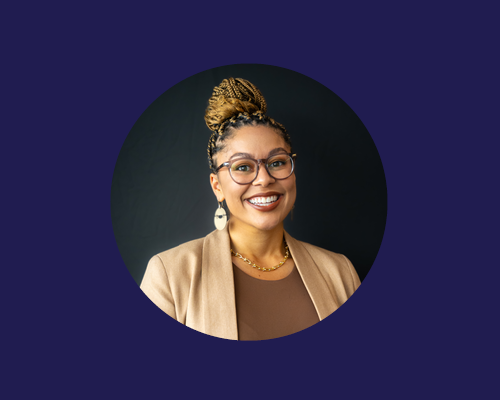
For Jazmyn Clark, the criminal legal system can’t work if it doesn’t work for everyone.
Clark, the ACLU of Washington’s Smart Justice policy director, grew up in Southern California where, in a justice-impacted family, she got her spark to pursue a career in law.
“I learned how impactful attorneys could be,” Clark said, noting the career path aligned with her values of being of service to others.
In a criminal legal system that is often racist, classist and perpetuates lasting damage, Clark pursued work as a public defender to advocate for people who are not on the stronger side of that power dynamic.
“It’s less about defending a person’s conduct, and more so about standing in-between them and a system that’s designed to harm them in many, many ways,” she said.
Clark worked for nearly eight years as a public defender in Spokane and Seattle, representing indigent clients. She enjoyed the work but felt she couldn’t make the changes she wanted to see systemically for all clients. Instead of dismantling the problems in the criminal legal system, she often felt the work perpetuated them.
“At some point, it sort of feels like I’m just yelling into the void,” she said.
Clark joined the ACLU of Washington in 2022 as a staff attorney, with hopes to make a larger impact. She worked on several issues ranging from youth policy and criminal legal reform, to advocating for unhoused people and transgender rights.
In July, she made the move to her current role as director of the ACLU’s Smart Justice Policy Program. She might get relief for individual clients as an attorney, but working in policy, she sees this as an opportunity to improve the lives of all Washingtonians by changing laws.
In her current role, Clark is working on meaningful sentencing reform, decriminalizing poverty, and advocating for alternatives to prosecution, among other issues — the kind of work that lets her work on systemic change. She faces a challenge in combatting narratives around crime and substance use that often works against the people she seeks to help. But she understands the importance of preserving.
“I think we need to always, as much as we can, humanize the folks that we are working with and for to help people who have had the privilege of never having these experiences… know that’s not particularly the case for everyone,” she said. “Addiction does not make a person any less worthy of possessing their own civil rights, same with incarceration.”
<- Back to Washington in Action Winter 2023 Newsletter - Table of Contents




